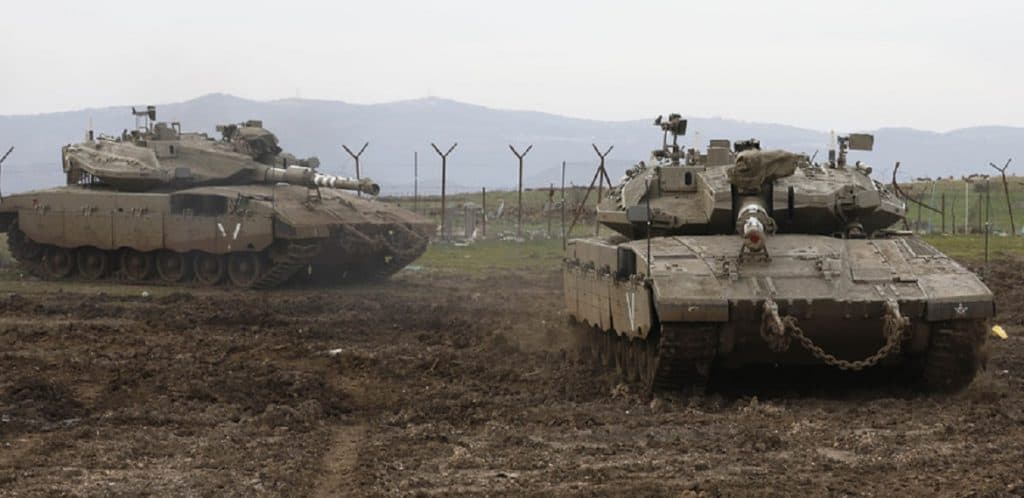By Denis Korkodinov
Recent Israeli attacks on Syrian territory indicate that the confrontation between Tehran and Tel Aviv is very close to the “boiling point”. A military conflict between Iran and Israel seems almost inevitable.
As a result of the significant limitation of the American contingent of troops in Syria, there was no one left who could prevent Tehran and Tel Aviv from starting full-scale military operations against each other.
Russia, in this case, is unlikely to play the role of an international peacekeeper, since it is busy with the tasks of protecting the Bashar al-Assad regime. And if Iran and Israel do not pose a direct threat to official Damascus, then Moscow will not intervene. In this regard, Tel Aviv’s dangerous military maneuvers pose a huge risk of war with the Ayatollah regime.
Moreover, against the background of criminal charges brought against Israeli Prime Minister Benjamin Netanyahu, he needs to unleash a military conflict in the near future in order to postpone his resignation and imprisonment through the state of emergency. Moreover, the social unrest in Iran makes the Ayatollah regime extremely vulnerable to outside attacks.
According to Tel Aviv, during recent attacks in Syria, at least 16 objects of pro-Iranian forces were destroyed. In addition, the attack was committed on the outskirts of Damascus, where Iran’s ballistic missile depots are located.
Israel used as an excuse for a military operation the interception of four Iranian-made missiles in the sky over the Golan Heights. However, the ayatollah regime cast doubt on this fact, claiming that Tel Aviv was the first to strike at Syrian territory, thereby giving Tehran a chance to retaliate.
Until 2015, Israel unimpededly attacked Syria. In particular, in 2013, Tel Aviv was able to almost completely destroy the strategic facilities of Iran and Hezbollah on the territory of the SAR. At the same time, Bashar al-Assad was not able to answer, because at that time he had practically no serious international support and was on the verge of surrender.
However, with the advent of Russia, the rules of the game have changed. Moscow deployed modern air defense systems in Syria, deployed thousands of troops and dozens of ships to the region, set up military bases, as a result of which Israel took significant risks by launching new attacks. The situation for Tel Aviv has improved thanks to the agreements reached between Benjamin Netanyahu and Vladimir Putin that Moscow will not intervene if Israel does not threaten the existence of the Bashar al-Assad regime.
Nevertheless, the participation of Iran in the Syrian theater of operations was perceived by the Israeli leadership extremely painfully, and therefore, sooner or later, the conflict between the countries would develop into a hot phase.
Currently, Israel has stepped up its attacks. In 2019 alone, Israeli aircraft inflicted about 800 attacks on Iranian targets in the UAR. Meanwhile, if previously Tel Aviv was absolutely sure that Iran would not answer at least on the basis that Moscow had asked for it, now such confidence cannot exist in principle. And at present, Russia is unlikely to stop Tehran from attacking Israel.
(The opinions expressed in this article are solely those of the author and do not necessarily reflect the views of World Geostrategic Insights)







